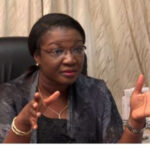The suspension of Chief Justice Gertrude Torkornoo by President John Mahama has sparked national debate. While the Constitution allows the President to take action when there is a legal reason, this move has shocked many people.
It is not common to see a Chief Justice suspended in Ghana. The timing and manner of this suspension have led some citizens and experts to wonder if it was done purely for legal reasons or if there is a political motive behind it.
People are also asking how this decision affects the strength and independence of the judiciary. This moment is becoming a major test for Ghana’s democratic systems.
Why the Reaction From the Ghana Bar Association Is Raising Eyebrows
The Ghana Bar Association has strongly reacted to the suspension of the Chief Justice. This has surprised many Ghanaians. In the past, when the NDC appointed their only Chief Justice, the GBA challenged it at the Supreme Court.
Today, they seem to be defending the NPP’s appointed Chief Justice. Many people are wondering if the GBA is showing political bias. Others believe the GBA is trying to defend the independence of the courts. This confusion has raised serious questions about whether the GBA is consistent or selective. Ghanaians want to know if professional groups are focused on justice or influenced by political interests.
History of Chief Justice Appointments and Why This One Feels Different
Since 1992, Ghana has had seven Chief Justices. Six of them were appointed by the New Patriotic Party and only one by the National Democratic Congress. This shows a long-standing pattern.
The suspension of Chief Justice Torkornoo, who was appointed by the NPP, is causing many to question whether her removal is political. People are also asking why only the NDC’s appointment was challenged in court in the past. This background has made the current case feel unusual. It is not just about this one decision. It is about how past patterns are influencing people’s understanding of today’s actions.
Public Trust in the Judiciary Is Now Being Put to the Test
Ghanaians expect the judiciary to be neutral and fair. When political parties seem to be too involved in the appointment or removal of judges, public trust is weakened. Many citizens are now questioning whether court decisions are truly based on law or influenced by party interests.
This can create fear and mistrust in the system. If people do not believe in the courts, they may stop using legal channels to solve problems. The country cannot afford this. It is important that all branches of government work to protect the independence and dignity of the judiciary at all times.
Why Justice Baffoe-Bonnie’s New Role Is Causing Mixed Reactions
President Mahama has appointed Justice Baffoe-Bonnie as Acting Chief Justice while the case involving Justice Torkornoo is resolved. Some Ghanaians are happy with this move. They say he is a respected and calm judge who may help restore order.
But others are worried. They fear this is the start of a bigger plan to change the judiciary. Some think this new appointment could lead to more removals or replacements. The uncertainty is affecting how people see the courts. Everyone agrees that Ghana needs a strong judicial system. What is not clear is whether this change will help or hurt that goal.
This Could Create a Dangerous Cycle of Political Suspensions in the Future
One major concern is that this decision may become a bad example. If every new government comes into power and removes judges from the previous administration, Ghana’s courts will no longer be independent. Judges might start serving political parties instead of following the law. This could weaken the entire legal system.
A country without a stable and trusted judiciary cannot protect its citizens or their rights. Ghana has taken many years to build its democracy. We must not allow political rivalry to destroy that progress. This is the time to break the cycle and choose long-term stability over short-term politics.
Why Citizens Are More Focused on Fairness Than Party Loyalty
Most Ghanaians do not care which political party appointed which judge. What they want is justice. They want to go to court and feel that their case will be heard fairly. Right now, many citizens are worried that politics is entering the courtrooms.
This is a dangerous situation. When ordinary people lose trust in the courts, the entire justice system begins to fall apart. The courts must remain neutral and strong so that everyone, rich or poor, can receive fair treatment. Leaders must listen to the people and focus on making the system better, not more political.
Calls for Judicial Reform Are Growing Louder Across the Country
This situation has opened up a national conversation about how Chief Justices are chosen and removed. Many legal experts believe that the current process gives too much power to the President.
They are calling for reforms that will make the process more balanced. One idea is to involve more independent bodies in the appointment and removal of judges. Others suggest clearer rules that prevent political influence. If we do not make changes, this type of confusion and suspicion will continue. Now is a good time to look closely at the system and make it stronger for future generations.
How the Media and Civil Society Are Playing a Role in Shaping Opinions
The media and civil society groups are helping Ghanaians understand what is happening. They are sharing information, giving opinions, and asking questions that many citizens have. This helps the public stay informed. However, some media platforms and groups are also spreading biased or incorrect information. This creates confusion and fuels political tension.
It is important for media houses and civil society organizations to focus on truth and facts. They must also ask for more transparency from government officials. When media and civil groups do their work responsibly, they help strengthen democracy and protect the rights of all citizens.
Ghana’s International Image Depends on How We Resolve This Issue
Ghana is respected around the world for its peaceful democracy. Other countries look up to us. But how we handle this situation will affect our international image. Investors and international partners are watching closely.
If they see political interference in the judiciary, they may lose confidence in Ghana’s legal system. This could affect investments and international support. On the other hand, if we handle the issue with fairness and transparency, our image will become even stronger. This is not just about local politics. It is about how the world sees us and whether they can trust Ghana as a safe and stable country.
Conclusion: Ghana Must Rise Above Party Politics and Defend the Rule of Law
This issue is more than a legal case or a political move. It is a test of Ghana’s democratic strength. Our leaders must act with care, wisdom, and responsibility. The judiciary must be protected from political pressure.
The public deserves to know the truth. Ghana has built a strong reputation as a peaceful and fair country. We must protect that reputation. Now is not the time for division. It is a time for unity, clarity, and reform. Let us protect our courts so that justice can serve every Ghanaian, no matter their background or beliefs.









